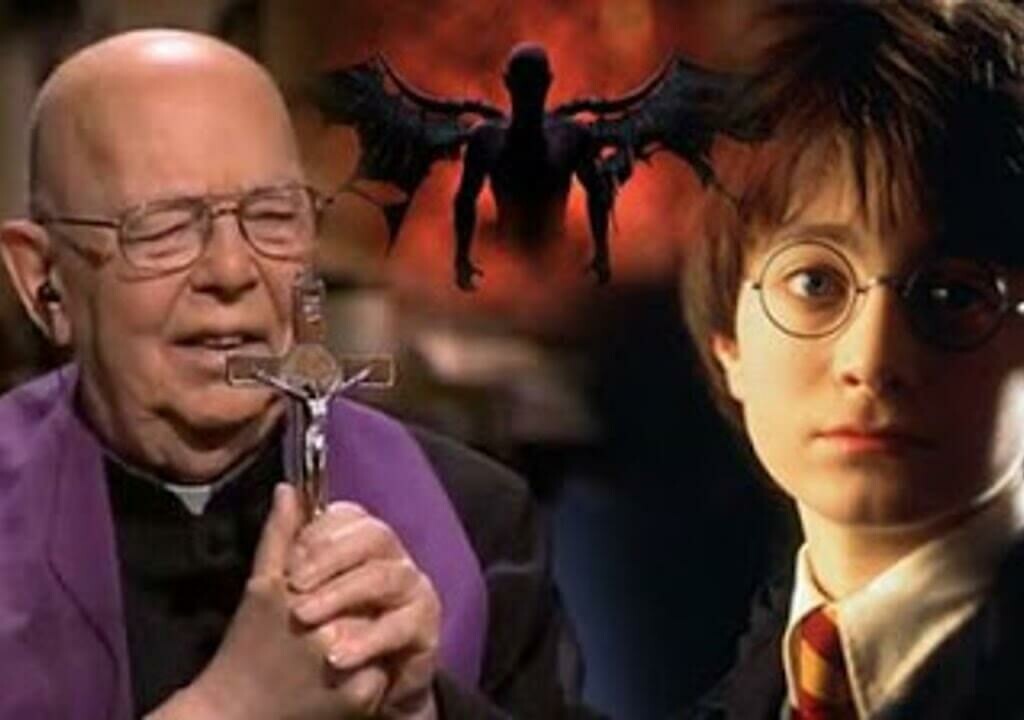Father Gabriele Amorth, a prominent exorcist of the Catholic Church, has requested that Pope Francis authorize all priests to perform exorcisms without needing special permissions. Additionally, he has sparked controversy by labeling yoga and the Harry Potter books as practices that, according to him, open the door to malevolent influences. This debate highlights the tensions between religious tradition and contemporary cultural trends.
Father Amorth: Yoga and Harry Potter, Gateways to Evil in Modern Society?
Currently, priests who wish to perform an exorcism must obtain authorization from their bishop, a permission that, according to Father Amorth, is difficult to secure. He argues that this leaves many individuals seeking spiritual assistance against what they perceive as demonic possessions without adequate support.
Amorth contends that the need for exorcisms is increasing due to the growing influence of satanic practices and witchcraft in society.
In statements to the British newspaper The Sunday Times, Amorth noted that his request to Pope Francis is inspired by an alleged exorcism performed by the pontiff in St. Peter’s Square.
According to Amorth, this public act underscores the importance of having trained and authorized priests to perform the rite. Furthermore, he called for exorcism training to be incorporated into seminary curricula, arguing that the battle against evil is a fundamental task of the Church.
Yoga and Harry Potter: Spiritual Threats?
Beyond exorcisms, Father Amorth has stirred controversy with his stance on popular cultural phenomena such as yoga and Harry Potter. According to Amorth, yoga is more than just physical exercise or a mental discipline; he views it as an “impious” practice that connects individuals with malevolent influences by diverting them from God.
This interpretation has been widely criticized, especially in contexts where yoga is valued as a tool for wellness and relaxation.
Regarding the Harry Potter books, Amorth has argued that they serve as a vehicle to normalize magic, which he directly associates with evil.
“Magic leads to evil,” he stated, emphasizing that J.K. Rowling’s work portrays practices that, while seemingly fictional, open young readers to demonic influences. For the exorcist, the global success of Harry Potter exemplifies how evil forces operate “subtly and cleverly” to attract people, particularly the most vulnerable.
The Role of the Church in a Changing World
Father Amorth’s statements reflect a broader challenge for the Catholic Church: how to balance tradition with modernity in an increasingly globalized and diverse world.
While some sectors defend Amorth’s views as a necessary warning against negative spiritual influences, others consider these opinions outdated and disconnected from contemporary reality.
Pope Francis, known for his pastoral approach and his desire to bring the Church closer to the people, could play a key role in this debate. A potential relaxation of the rules surrounding exorcisms would not only address the concerns raised by Amorth but also open up a broader discussion about the relevance of the rite in today’s world.
On the other hand, the criticisms of yoga and Harry Potter raise broader questions about the boundaries of faith in relation to cultural expressions and modern practices. Should the Church adopt a more open stance toward these influences, or is it its duty to remain steadfast in its traditional interpretation of good and evil?
Final Reflections
The debate sparked by Father Gabriele Amorth highlights the complexity of the tensions between religious tradition and contemporary cultural trends. From his call to facilitate exorcisms to his criticisms of popular practices, Amorth represents a viewpoint that, though controversial, continues to resonate in certain segments of society.
In a world where cultural influences are increasingly diverse and global, the Church faces the challenge of staying relevant without losing its identity. How these issues are addressed could have a significant impact on its relationship with the faithful and its role in today’s society.
Jose G Contreras — Demons, Exorcisms, Catholic Church





